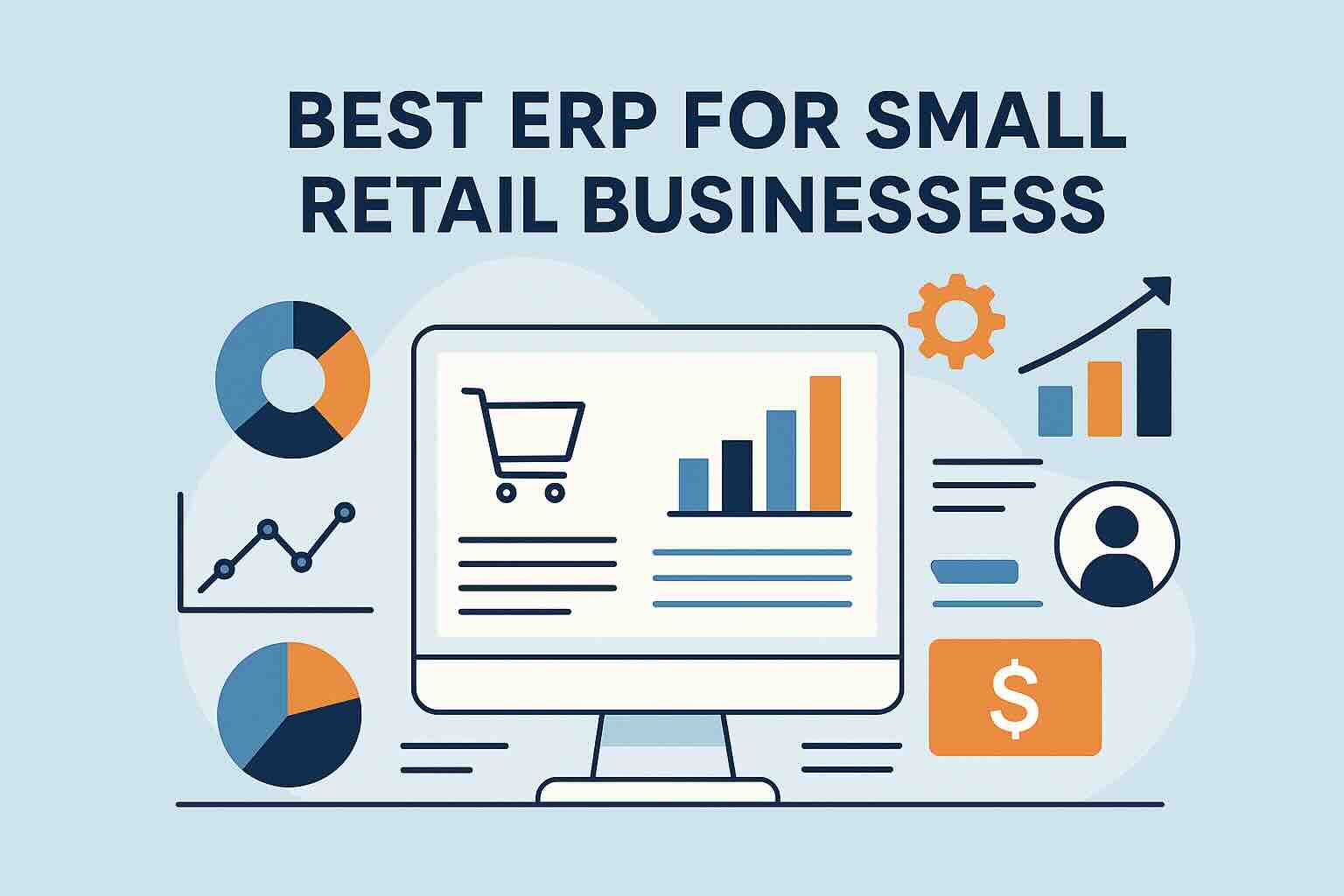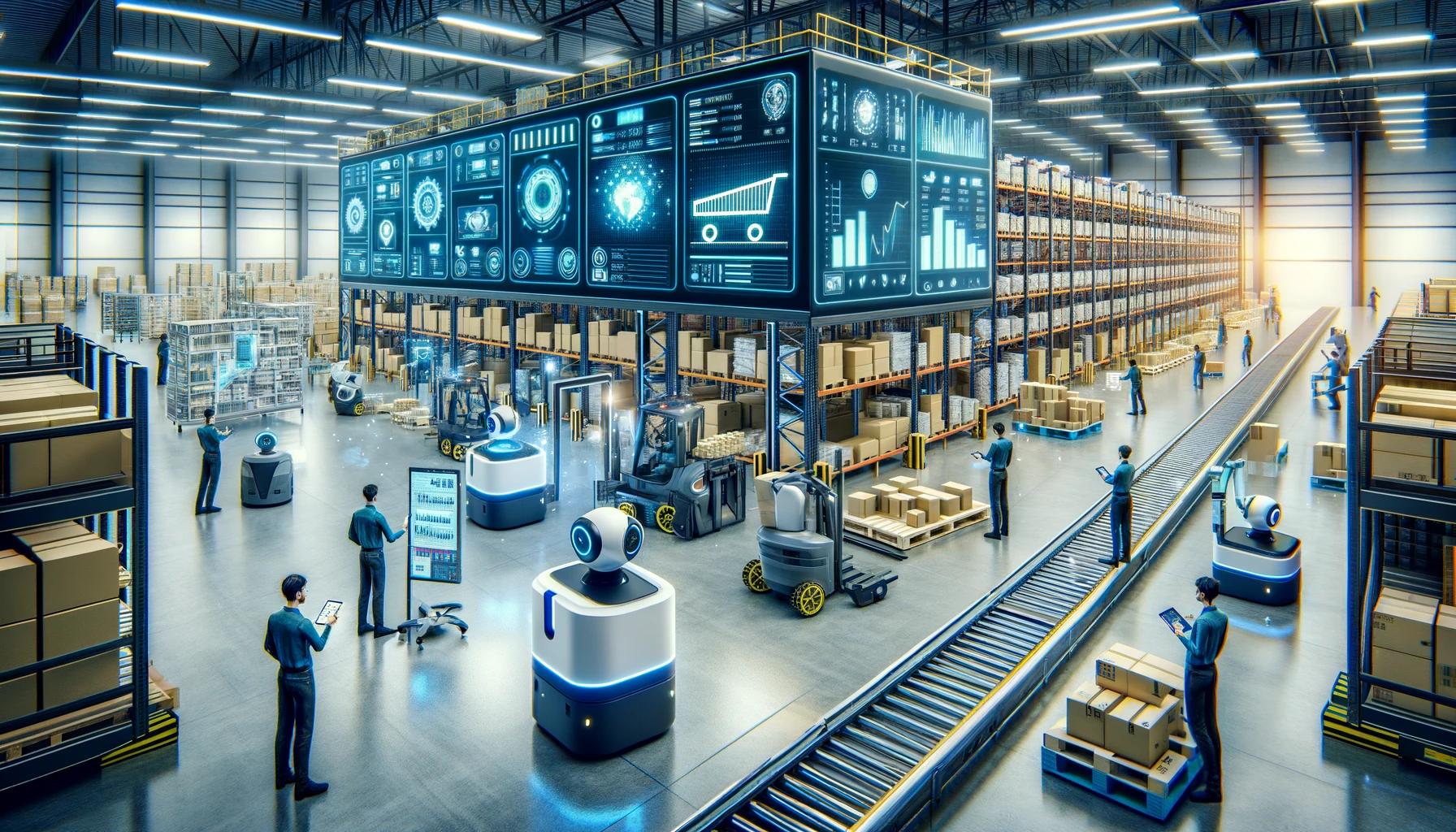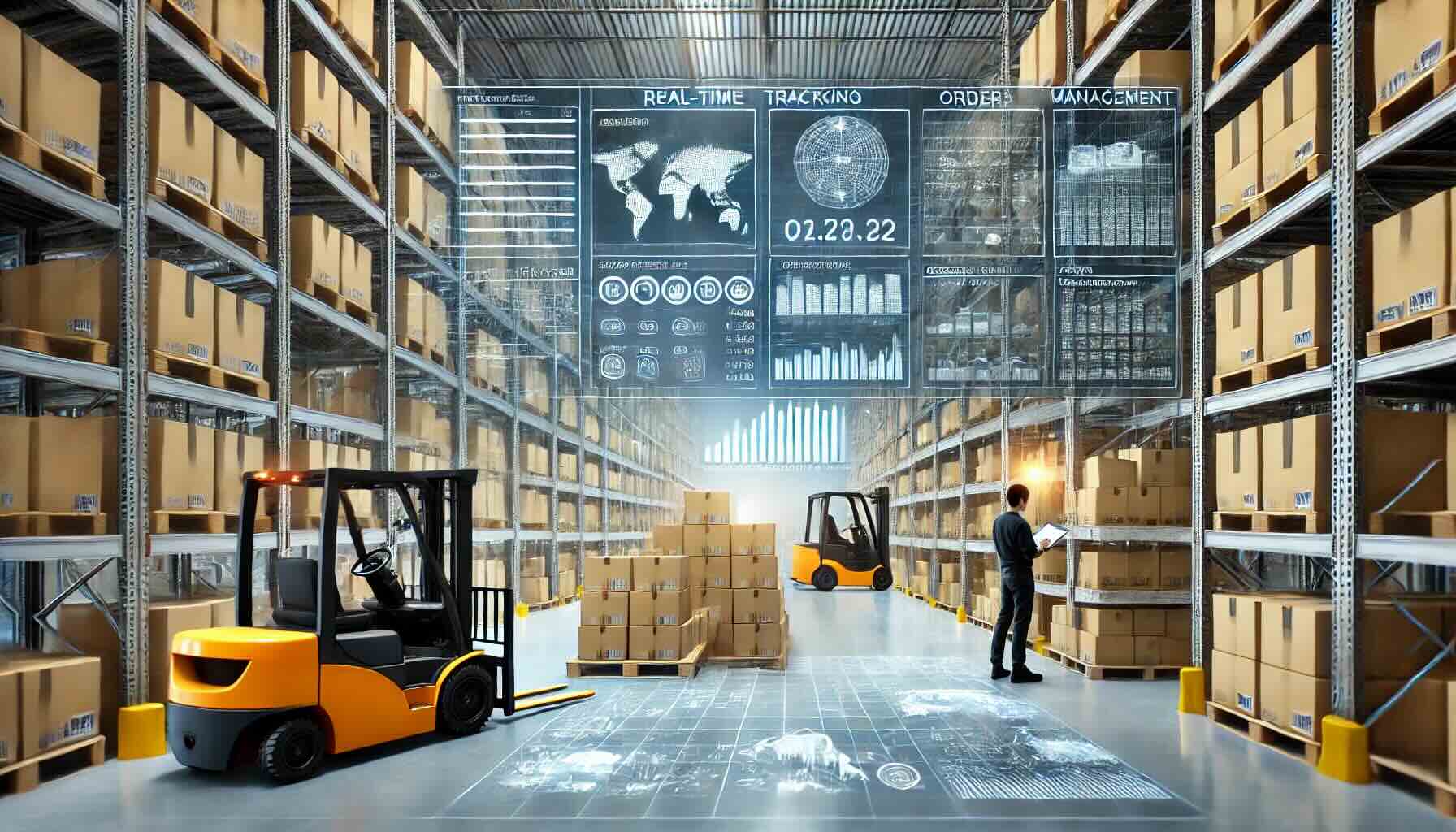Best ERP for Small Retail Businesses

Running a small retail business means managing inventory, sales, suppliers, customers, accounting, and more all at once. As your store grows, relying on spreadsheets or disconnected systems can lead to errors, wasted time, and lost revenue. That’s why many owners seek the best ERP for small retail business to unify operations in one system.
With so many ERP options out there, choosing the right one can feel overwhelming. Let’s explore what an ERP is, the benefits for small retailers, the features you should prioritize, and the top solutions on the market.
What is an ERP?
ERP (Enterprise Resource Planning) software is an integrated system that helps businesses manage and automate core processes. For retail businesses, this typically includes:
-
Inventory management
-
Sales and POS (Point of Sale)
-
Purchasing and supplier management
-
Customer relationship management (CRM)
-
Accounting and financials
-
Reporting and analytics
Instead of juggling separate tools for each function, an ERP centralizes everything in one platform. Consequently, you gain greater efficiency, fewer errors, and better decision-making.
Benefits of ERP for Small Retail Businesses
Investing in the best ERP for small retail business offers significant advantages:
-
Centralized data: Say goodbye to duplicate entries and conflicting records.
-
Improved inventory management: Get real-time visibility to prevent overstocking and stockouts.
-
Better customer experience: Enjoy faster checkouts, loyalty programs, and personalized service.
-
Streamlined purchasing: Automate supplier orders and restocking for smoother operations.
-
Accurate accounting: Reduce errors and maintain compliance effortlessly.
-
Actionable insights: Access clear reports on sales, inventory, and profitability.
Therefore, the right ERP can save time, reduce costs, and enable your retail business to grow sustainably.
Features to Look for in an ERP for Small Retail
Not all ERP systems are well suited for small retail businesses. To ensure you choose wisely, look for these essential features:
-
Ease of use: Staff should be able to learn the system quickly thanks to intuitive interfaces.
-
Cloud-based access: Manage your store from anywhere without the burden of expensive IT infrastructure.
-
Retail-focused functionality: Features like POS integration, barcode scanning, inventory tracking, and loyalty programs are crucial.
-
Scalability: Choose a system that grows with you as you add products, channels, or locations.
-
Integrations: Make sure it works with your e-commerce platforms, payment processors, and marketing tools.
-
Affordable pricing: Transparent and sustainable costs that align with your budget.
In addition, consider how well the system aligns with your unique workflows and goals.
Best ERP Options for Small Retail Businesses
Below are some of the most respected ERP systems for small retail businesses.
1. SAP Business One
SAP Business One is designed specifically for small and midsize businesses, delivering enterprise-grade power in an accessible package.
-
Full financial management
-
Advanced inventory and warehouse control
-
Purchasing and supplier management
-
CRM features for customer interactions
-
Retail-focused POS integrations available
-
Cloud or on-premises deployment
Retailers who want robust features with the backing of a global ERP leader will appreciate SAP Business One’s balance of power and affordability.
Learn more at SAP Business One
2. Acumatica
Acumatica is a modern, cloud-based ERP designed for small and midsize businesses, offering strong retail and e-commerce support.
-
Unified financials, inventory, purchasing, CRM, and order management
-
Retail and commerce editions with POS, multi-channel sales, and warehouse management
-
Real-time inventory visibility across locations
-
Integrations with Shopify, BigCommerce, and marketplaces
-
Role-based dashboards and mobile access
For small retailers who want an integrated, scalable solution with industry-specific features, Acumatica is a smart choice. Learn more at Acumatica
3. Odoo
Odoo is a modular, open-source ERP that’s popular among growing small businesses thanks to its flexibility and affordability.
-
Inventory, sales, purchasing, CRM, accounting
-
POS module tailored for retail stores
-
E-commerce integration
-
Thousands of customizable apps
-
Cloud or on-premises hosting
You can start with just the modules you need and add more as your business grows, offering unmatched flexibility. Learn more at Odoo
4. Microsoft Dynamics 365 Business Central
Microsoft Dynamics 365 Business Central is a trusted ERP for small and mid-sized businesses, combining familiar Microsoft usability with strong retail capabilities.
-
Comprehensive financial management
-
Inventory and supply chain control
-
Sales and customer service modules
-
Retail functionality via extensions
-
Integration with Microsoft 365, Power BI, and Azure
-
Secure, cloud-based access
If you’re already using Microsoft tools, Business Central offers a smooth, powerful way to standardize your business processes. Learn more at Microsoft Dynamics 365 Business Central
5. NetSuite
For retailers with complex needs or ambitious growth plans, Oracle NetSuite stands out as a leading cloud ERP.
-
Complete ERP covering financials, purchasing, CRM, and inventory
-
Omnichannel retail features for seamless customer experiences
-
Advanced reporting and forecasting
-
Global scale with strong vendor support
-
Fully cloud-based for easy access anywhere
Although it comes at a higher price point, NetSuite is ideal for retailers who want a solution that can support them through every stage of growth. Learn more at Oracle NetSuite
How to Choose the Best ERP for Your Small Retail Business
When evaluating ERP systems, keep these questions in mind:
-
What are your top priorities? Identify the processes you most want to improve.
-
What is your budget? Include subscription fees, implementation costs, and staff training.
-
Is it easy to use? Make sure your team can adopt it quickly.
-
Can it scale? Look for a system that can handle more products, locations, or channels as you grow.
-
Does it integrate well? Ensure it works smoothly with your current tools and systems.
Meanwhile, don’t hesitate to ask for demos or free trials to see which system feels like the best fit.
Final Thoughts
Choosing the best ERP for small retail business is one of the most important decisions you’ll make for long-term success. Whether you go with SAP Business One, Acumatica, Odoo, Microsoft Dynamics 365 Business Central, or NetSuite, the right ERP will unify operations, cut costs, and deliver a better customer experience.
Not sure which ERP is right for you?
Choosing the right ERP can truly transform your business. With our AI-powered Compare ERP tool, you can quickly explore and compare solutions tailored to your needs. Get a personalized recommendation in less than five minutes. Our advanced engine analyzes millions of data points across 100+ ERP solutions, delivering your top three picks based on your business priorities. Best of all, it’s completely free. Take the first step toward streamlining operations and boosting productivity and start comparing today!









